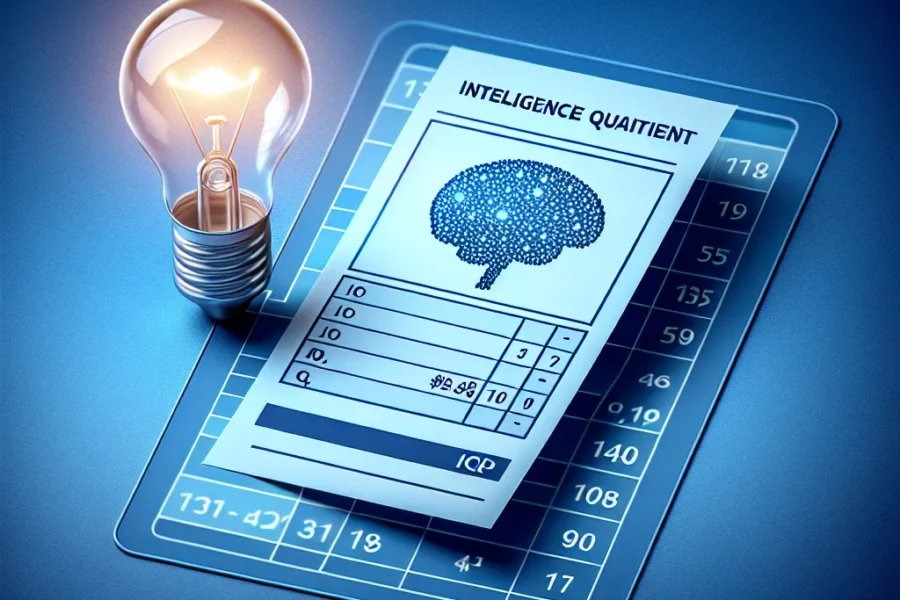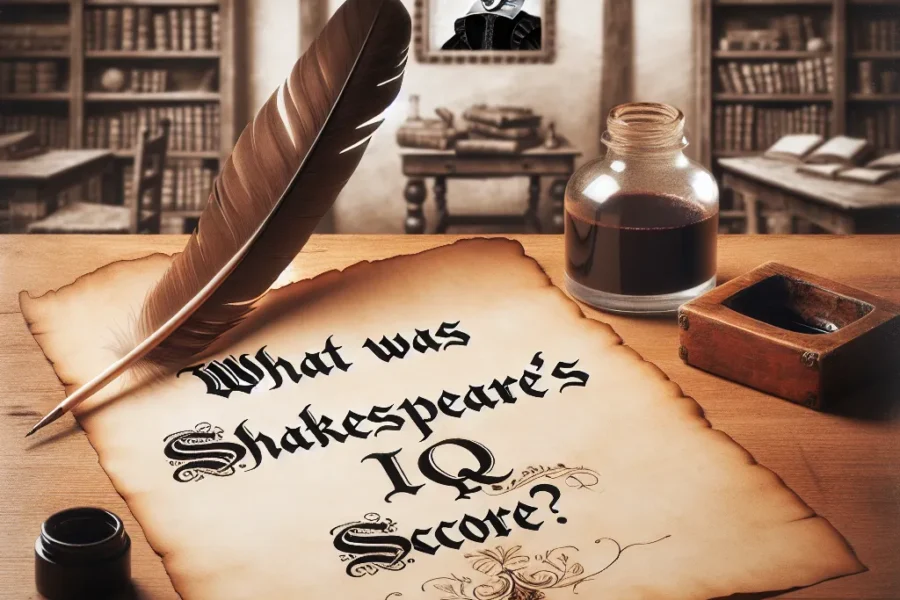Niccolò Machiavelli, a pivotal figure in the Renaissance and the mastermind behind political treatises like “The Prince,” remains a subject of fascination for scholars and enthusiasts alike. His ability to manipulate, strategize, and outmaneuver competitors in a time of intense political intrigue is widely studied. Given his exemplary prowess, many have speculated about his intelligence quotient (IQ) and how it might have related to his ability to achieve so much. But what was Niccolò Machiavelli’s IQ score?
If you are looking for legitimate IQ Tests which pass the entry bar for Mensa, see our IQ Tests.
To understand Machiavelli’s intellectual capacity, we must first consider the context in which he lived. Born in 1469 in Florence, Italy, Machiavelli was a diplomat, philosopher, and writer during the Renaissance. This was a period that prided itself on humanism, the rediscovery of classical philosophy, and the pursuit of learning. Surrounded by these intellectual forces, Machiavelli demonstrated a keen understanding of human nature, politics, and power dynamics, which were evidenced in his works.
One must remember that IQ tests, as we understand them today, were not developed until the early 20th century. Therefore, any estimation of Machiavelli’s IQ is purely speculative. That said, his capabilities can be assessed based on his written works, decisions, and historical impact. Experts often compare historical figures to modern intellectual metrics to estimate their IQ. Past analyses of Machiavelli suggest that he might have had an exceptionally high IQ—potentially in the range of 150-160.
A key indicator of Machiavelli’s high intelligence is his mastery of political theory and his pragmatic approach to governance. His seminal work, “The Prince,” serves as a manual for rulers on how to maintain power by any means necessary. Machiavelli’s grasp of realpolitik—politics based on practical objectives rather than moral or ideological considerations—is ahead of its time. His clear, incisive writing suggests high verbal intelligence, and his ability to formulate theories based on the political landscape implies strong analytical skills.
What distinguishes Machiavelli from others is not just his theoretical knowledge but also his practical experience in diplomacy and statecraft. As a diplomat, he conducted numerous missions to foreign courts, including France and the Holy Roman Empire. These assignments granted him firsthand insights into the workings of power, alliances, and betrayals. His successful navigation through these complex political terrains is a testament to his shrewdness and adaptability—qualities closely aligned with high intelligence.
Another facet of Machiavelli’s genius is his ability to understand and anticipate human behavior. In his works, he does not idealize people; rather, he presents them as they are—self-interested, power-hungry, and often morally ambiguous. His observations on human nature, leadership, and politics are grounded in a realistic worldview, which has led to the term “Machiavellian” being synonymous with cunning and strategic manipulation. This level of psychological insight is a hallmark of high intellectual capability.
Machiavelli’s work extended beyond “The Prince.” His writings in “Discourses on Livy,” “The Art of War,” and various other essays and letters showcase a versatile intellect engaged in multiple disciplines. In “Discourses on Livy,” he elaborates on republican ideals and the importance of civic virtue, demonstrating his ability to synthesize and critique historical and contemporary governance systems. This interdisciplinary approach requires a cognitive flexibility indicative of high intelligence.
The multilayered nature of Machiavelli’s work also demonstrates an ability to think abstractly and systemically. For instance, his strategic advice in “The Prince” extends beyond immediate tactical considerations to include broader, long-term implications for statecraft and governance. This ability to foresee and plan for the future is a critical component of high-level strategic thinking.
Discussion about Machiavelli’s high IQ is not merely speculative but supported by his life’s impact. His ideas have permeated centuries of political theory and practice, influencing figures from Thomas Hobbes to Friedrich Nietzsche, and shaping the foundational concepts of modern political science. His work has been translated into multiple languages and remains a critical component of political studies curricula around the world. The longevity and continuing relevance of his ideas underscore an exceptional intellectual legacy.
Moreover, Machiavelli’s intellectual achievements are also reflected in his ability to endure and adapt under pressure. His fall from grace in 1512, following the return of the Medici to power in Florence, led to his imprisonment and torture. Even in adversity, he continued to write and reflect on politics, producing some of his most influential works during his forced retirement. This resilience further showcases a robust intellectual fortitude that transcends mere book smarts.
One should also consider Machiavelli’s capacity for innovation and original thought. While some critics argue that his ideas were not entirely original and were heavily influenced by earlier sources, Machiavelli’s skill lay in his synthesis and presentation of these ideas in a fresh, pragmatic, and accessible manner. His ability to distill complex political philosophies into structured advice for rulers illustrates a high level of intellectual creativity.
However, while it is tempting to fixate on a single number to quantify Machiavelli’s intelligence, doing so risks oversimplifying the multifaceted nature of his intellect. Intelligence comprises various dimensions, including logical reasoning, emotional intelligence, creativity, and practical wisdom. Machiavelli’s life and work exhibit strengths in all these areas, underlining the complexity of his intellectual make-up.
Historically, attempts to retroactively assign IQ scores to historical figures have been controversial and speculative. These estimations often rely on achievements, biographical accounts, and the judgments of contemporaries, which may not provide a complete or accurate picture. Nonetheless, the consensus remains that Machiavelli possessed an exceptional mind, capable of profound thought and significant practical achievement.
In conclusion, while we may never ascertain Niccolò Machiavelli’s exact IQ score, the evidence of his intellectual brilliance is irrefutable. His profound understanding of human nature, skillful political maneuvering, and lasting influence on political theory are testaments to his high intelligence. Machiavelli’s life and works continue to inspire and challenge scholars, ensuring that his intellectual legacy endures. Whether or not we can quantify his IQ, it is clear that Machiavelli was among the most astute thinkers of his time—a true Renaissance polymath whose ideas resonate strongly even today.



Leave a Comment